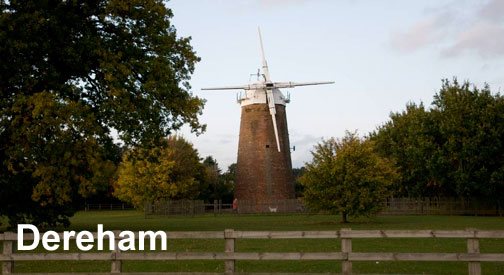Very Late Witch Case from Norfolk, 1941 October 11, 2014
Author: Beach Combing | in : Contemporary , trackbackThis blog has long taken pleasure in noting late cases of witchcraft from Britain and Ireland. From time to time Beach announces, in arrogance, that this case or other was absolutely the latest: just last month it was an assault on a witch from 1924 from Devon. However, the following remarkable case seems to make a mockery of even the 1924 date. This particular case is from 1941, when both parties in the argument should frankly have had better things to be do than cast spells and counter spells: 1940 had been Britain’s worst year, of course. The article appeared in the British press in January 1941 under the title ‘Witchcraft Plea’. Dereham is East Dereham in central Norfolk in the flat wastes of East Anglia. If witchcraft was going to survive in England past the Battle of Britain it would be here. There is even a late nineteenth century witchcraft case from East Dereham (another post another day), the area had form. We take the short newstory sentence by sentence. It would be wonderful to get a longer account.
The defence that his elderly neighbour. Mrs Melvena Spinks of East Dereham, Norfolk, had practised witchcraft was put forward by an Army pensioner, Gordon Sutton, summoned at Dereham for assaulting Mrs Spinks on Christmas Eve.
The assault of a witch was traditionally accompanied by an attempt to make her spill blood (and so break any spell). Is this implicit here or was Gordon Sutton simply thirsting for physical retribution for spells imagined? The victim’s description further down this page suggests the latter.
Sutton pleaded not guilty, and declared: ‘A witch has been in the witness box. Many a time she has tied a bunch of flowers on my front gate, and I have thrown them away.’
Beach knows of no example of flowers being used as a spell by English witches. Can anyone fill in the gaps here: drbeachcombing AT yahoo DOT com The short article continues.
‘You know that is going back to the witchcraft of the Dark Ages. I dare not tell you half the terrible things she has done to me. I have been tortured for five years.’
Are we dealing with the last of traditional English witchcraft or a man with a mental condition, as an ex army man he may not have been a local? There is too little in the story, perhaps a background check on the two participants would push things along. Melvena is an unusual name and should be easily traced.
Mrs Spinks denied that she had ‘practised witchcraft.’ She said Sutton rushed at her in her garden and hit her twice. Both were bound over for six months.
Another curiosity of this case is that both were bound over. This suggests a degree of culpability on the part of Mrs Spinks too. Why?
Just a note for bibliographers and future researchers. Christina Hole and then Owen Davies wrote the reference to this case down wrong claiming it was 1947 . Given their authority in the field, this date has spread like nappy rash. It should be disregarded!! The date is definitely 1940/1941. Presumably CH confused 41 with 47 in her handwritten notes.
11 Oct 2014: Invisible starts with the point that the flowers might have been announcing poor old Sutton’s funeral. Apparently this type of intimidation is common with mob violence: your funeral is coming… Femme Malheureuse on twitter made some interesting points. We chatted together about the names. Melvena sounds, she noted, Gaelic and I suggested that it was not a likely name to be given out in East Anglia in, say, the 1890s. She also noted the presence of unusual psy-op campaigns in the WW2 Britain. It is possible… thanks Invisible and FM.
20 Oct 2014: Norfolk Tours (link to home page) gave us this information via twitter (and with the help of Sue) ‘Melvena was born in 1895 in the Stanford Battle Area of Breckland Norfolk and died 1966’. Sounds very local then. I spent about an hour trying to find a census record with no luck. For this date (give or take a couple of years) and for Norfolk there were about five Melvena (with slightly changed spelling). I have seen though how easily records escape even a thorough search. The quest continues! Invisible, meanwhile, with a reminder that witch cases never really get old…. The link is for Tanzania.





